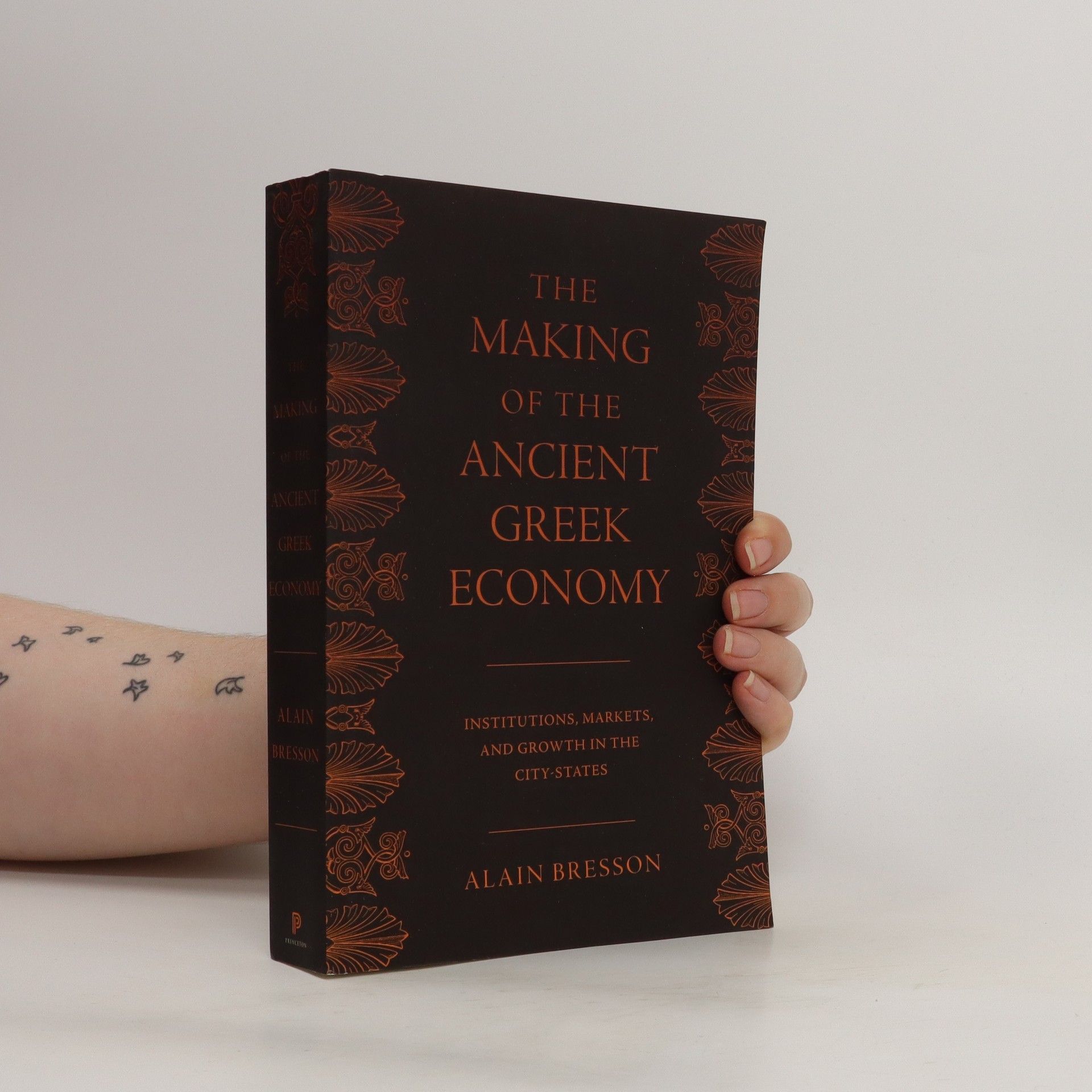The Making of the Ancient Greek Economy
- 648 pages
- 23 hours of reading
This comprehensive introduction to the ancient Greek economy transforms our understanding of the subject. Alain Bresson, a leading authority in the field, combines extensive knowledge of ancient sources with innovative approaches rooted in recent economic historiography. He provides a detailed picture of the Greek economy from the last century of the Archaic Age to the end of the Hellenistic period, emphasizing the city-state as the primary economic institution. Rather than focusing solely on Athens, Bresson examines all city-states. This expanded and updated English edition of a previously acclaimed French work offers a groundbreaking theoretical framework for studying ancient Greece's economy. It presents a thorough survey and analysis of key economic institutions, resources, and factors, while engaging with significant historiographical debates. Topics covered include climate, demography, transportation, agricultural production, market institutions, money and credit, taxes, exchange, long-distance trade, and economic growth. The result is a compelling demonstration that studying the ancient Greek economy as an independent entity is now possible, rather than merely as a secondary aspect of social or political history. This work is essential reading for students, historians of antiquity, and economic historians across all periods.
